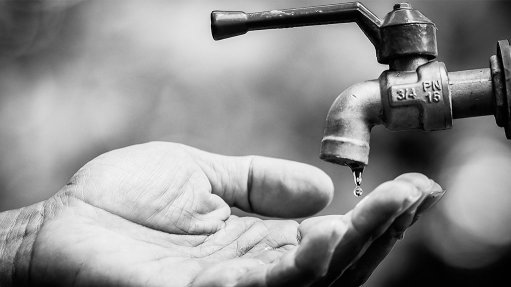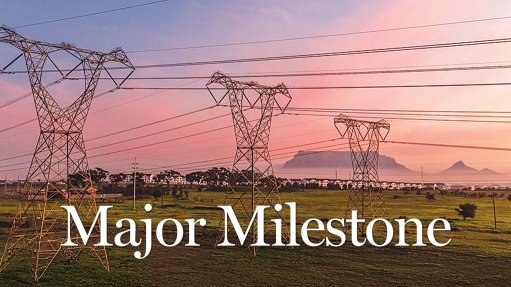Sudan and the ring of fire
With war between Israel and Palestine, centred on Gaza, the ring of fire that has engulfed the Sahel now appears to reach up to encircle the Mediterranean, stretching as far as Jordan, with Egypt serving as the only buffer. This as Sudan’s rebels, the Rapid Support Forces (RSF), in early November managed to rout the Sudanese Armed Forces (SAF) to take control of all the garrisons in South, West and Central Darfur. The RSF says it has taken control of the SAF army headquarters in West Darfur’s capital, El Geneina.
In Sudan, the rebel group is not known by its new ‘official’ name, RSF, but as the Janjaweed, defined as an Arab militia operating mainly in Darfur and infamous for ethnic cleansing of non-Arabic-speaking people. The Janjaweed/RSF’s origins are part of the old Islamist-backed regime of divide-and-rule militia under Omar Bashir, the former military- leader-turned-President who was ousted after 30 years as dictator during a prodemocracy general strike. As so often happens with grand-scale divide-and-rule tactics, the Janjaweed migrated to becoming a fully fledged armed group that ultimately threatened the State with an initial military coup attempt in 2021 and then again in April this year. Now the RSF has taken control of Darfur, has resumed the ethnic cleansing – mass killing of non- Arabic-speaking people – and has stepped up its other unsavoury activities. In September, it became clear that the RSF had subjected the non-Arabic-speaking Masalit tribe to weeks of attacks in West Darfur, with media reporting that about 1 000 bodies had been buried in mass graves in El Geneina. The United Nations has also singled out the RSF militia for pressganging boys and girls into the military and for sexual slavery. To date, the conflict sparked by the RSF’s April coup attempt has reportedly killed 9 000 people, while some 5.6-million are on the move.
The RSF’s recent gains in Darfur will give the rebel group a stronger hand at ceasefire negotiations with the SAF that are taking place in Saudi Arabia. Both the SAF and the RSF have pledged to work towards a ceasefire and to open routes for humanitarian aid. Yet the rebel RSF has never had the wherewithal to set up an administration to govern the province, which, to put that challenge into perspective, is the size of France.
The SAF is nominally in charge of the national administration with its leader, Abdel Fattah al-Burhan, who is also de facto head of State. While Burhan is nominally in control of the levers of State and administration, the loss of Darfur is a considerable blow and a challenge to his status as de facto ruler. As a military force, the SAF is as much a victim of the divide-and-rule government under Bashir, who, having come to power in a military coup himself, set about hollowing out the armed forces to reduce their threat to his rule. Despite the old regime’s origins in the Muslim Brotherhood, Burhan’s main backer remains Egypt. Sudan experts claim that behind Burhan is part and parcel of the old regime, a group of Islamists seeking to use the conflict to restore their control of the country. One name mentioned in particular is Ali Ahmed Karti, the country’s former Foreign Minister and commander of one of Sudan’s early militia groups that were prevalent in the early 1990s. In late September, the US imposed sanctions on Karti and two SAF-run companies for undercutting efforts to find peace in Sudan for personal gain.
Simultaneously, in Addis Ababa, Ethiopia, thousands of kilometres away from the talks between the belligerents, civil society held four days of talks about the postwar, postdictatorship future. The talks are said to have taken place in “an atmosphere of coherence” and comprised prodemocracy groups, old political parties and the more revolutionary and frequently obstructive Communist Party. The convivial nature of the talks resulted in an agreement to take them further in two months’ time. However, it’s unclear what influence civil society can have as the country continues to spiral into more conflict, drawing in proxies.
All signs are that the war is set to continue. Although the RSF now controls Darfur province, it is reportedly preparing to continue the war and to move north, where hundreds of thousands of internally displaced people have sought refuge. The RSF, through its leader, Mohamed Hamdan ‘Hemedti’ Dagalo, is believed to have the backing of Russia and the United Arab Emirates (UAE). In late September, The New York Times reported that the UAE, under the guise of protecting refugees, is running an elaborate covert operation to back the RSF – supplying weapons and drones and giving the RSF rebellion medical support. The covert operations are from across the border in Chad.
Sources report that the UAE is heavily in sync with Russia and Russia’s objectives to destabilise – and so control – the Sahel, an integral part of the ring of fire that now encircles the Mediterranean. On the ground is Russia’s military proxy, the mercenary group Wagner, which in turn has been nationalised and brought to heel by the Russian State. Much of Russia’s war effort and sanctions-busting campaign is believed to come from gold smuggled to Dubai from Africa, including from Sudan, Zimbabwe, Mali and Burkina Faso.
As surely as a chicken coop attracts rats, which then attract snakes, Russia’s involvement in Sudan seems to be attracting further proxies. A Ukrainian newspaper on November 8 published an unverified video claiming to be of Ukrainian special forces hunting Russian mercenaries from the Wagner group in an unknown urban location in Sudan. Although Ukrainian military intelligence has reportedly confirmed this, the video has not been geolocated to Sudan.
What is more certain is that Russia’s involvement in the Sahel, and the fact that Africa’s illicit gold trade is filling Russia’s war chest, has drawn attention. In early November, the UK’s National Crime Agency (NCA) warned UK financial institutions of an abuse of gold that was financing Russia’s war effort and undermining the impact of the international sanctions regime. The NCA says the gold has become a significant income stream for Russia’s war effort, second only to oil and gas, and in 2021 it reportedly contributed £12- billion to the Russian economy. In a new round of individual sanctions, the UK has extended sanctions to a Zimbabwean national for his association “with a person that makes available funds to a person that makes available economic resources that could contribute to destabilising Ukraine or undermining or threatening the territorial integrity, sovereignty or independence of Ukraine”. As instability spreads throughout the Middle East, more gold-linked sanctions are likely to follow.
Article Enquiry
Email Article
Save Article
Feedback
To advertise email advertising@creamermedia.co.za or click here
Announcements
What's On
Subscribe to improve your user experience...
Option 1 (equivalent of R125 a month):
Receive a weekly copy of Creamer Media's Engineering News & Mining Weekly magazine
(print copy for those in South Africa and e-magazine for those outside of South Africa)
Receive daily email newsletters
Access to full search results
Access archive of magazine back copies
Access to Projects in Progress
Access to ONE Research Report of your choice in PDF format
Option 2 (equivalent of R375 a month):
All benefits from Option 1
PLUS
Access to Creamer Media's Research Channel Africa for ALL Research Reports, in PDF format, on various industrial and mining sectors
including Electricity; Water; Energy Transition; Hydrogen; Roads, Rail and Ports; Coal; Gold; Platinum; Battery Metals; etc.
Already a subscriber?
Forgotten your password?
Receive weekly copy of Creamer Media's Engineering News & Mining Weekly magazine (print copy for those in South Africa and e-magazine for those outside of South Africa)
➕
Recieve daily email newsletters
➕
Access to full search results
➕
Access archive of magazine back copies
➕
Access to Projects in Progress
➕
Access to ONE Research Report of your choice in PDF format
RESEARCH CHANNEL AFRICA
R4500 (equivalent of R375 a month)
SUBSCRIBEAll benefits from Option 1
➕
Access to Creamer Media's Research Channel Africa for ALL Research Reports on various industrial and mining sectors, in PDF format, including on:
Electricity
➕
Water
➕
Energy Transition
➕
Hydrogen
➕
Roads, Rail and Ports
➕
Coal
➕
Gold
➕
Platinum
➕
Battery Metals
➕
etc.
Receive all benefits from Option 1 or Option 2 delivered to numerous people at your company
➕
Multiple User names and Passwords for simultaneous log-ins
➕
Intranet integration access to all in your organisation


















